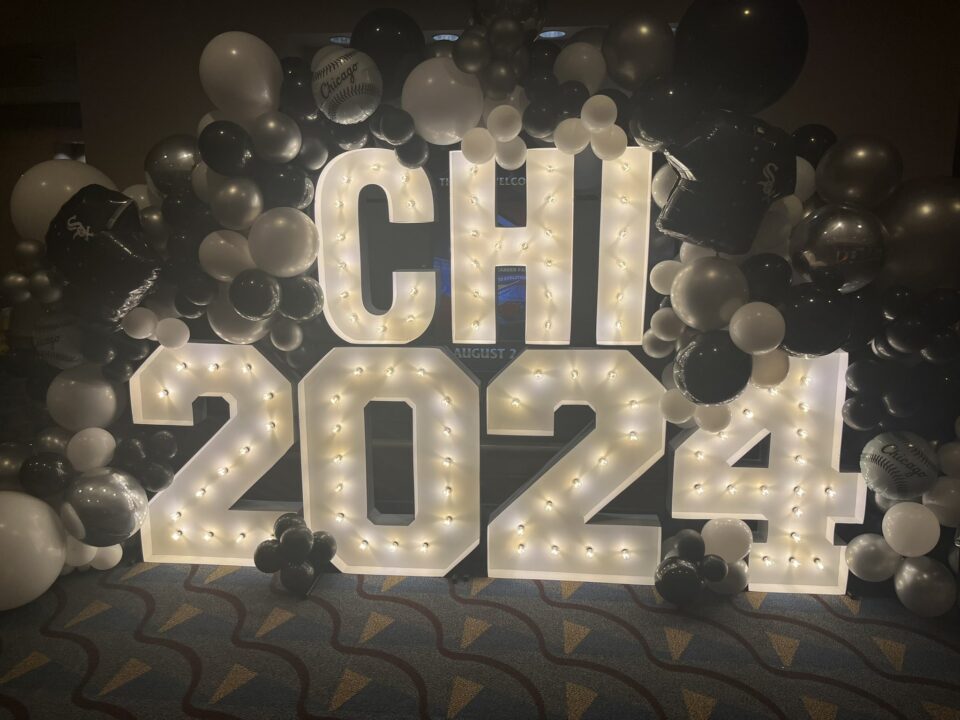Group to ‘Continue to Monitor This Situation’
‘I Could Not Afford to Be Sick, But Alas It Happened’
Paramount Decides Not to Sell BET Networks
Trudeau Elected Indigenous Journalists Leader
Delano Lewis, NPR’s Only Black CEO, Dies at 84
Conservatives Target Program for Black Filmmakers
More Than 100 Outlets to Pick Up Murrow Awards
Sharpton Revisits Ancestry in Response to DeSantis
50 Years: 3 Execs Who Helped Make Hip-Hop
Short Takes: Jonathan Abrams and N.Y. Times sports department; terminology in covering Lāhainā wildfire; Selina Wang; today’s service for Charles J. Ogletree Jr.; ” ‘761st Tank Battalion: The Original Black Panthers”; Marc J. Spears; Gregory Moore; Eric Ludgood; Africa Channel; journalists in Sudan conflict; Afghan journalists under Taliban; slain Guatemalan journalists; covering racism in Colombia; moderating gruesome Facebook posts in Kenya; Google training 20,000 Nigerians; anti-racist manual in Brazil; declining press freedom in Senegal.
Homepage photo: National Association of Black Journalists touts 2024 convention in Chicago (Credit: Twitter)
Support Journal-ismsDonations are tax-deductible.
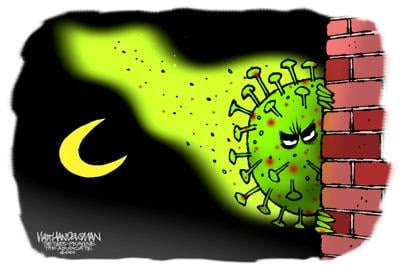
Group to ‘Continue to Monitor This Situation’
The National Association of Black Journalists broke its silence on the cases of COVID reported after its Birmingham convention, with new president Ken Lemon writing Wednesday that, “We host our in-person events in accordance with local, state and federal health agency guidelines,” offering safety tips and saying that, “We will continue to monitor this situation as we prepare for fall and winter programming and as we look toward spring and our 2024 convention in Chicago.”
The Asian American Journalists Association issued a similar letter after its convention last month, while the National Association of Hispanic Journalists has yet to respond to an inquiry.
At the Indigenous Journalists Association, formerly the Native American Journalists Association, which met last week in Winnipeg, Canada, “Surprisingly no COVID reports that I’ve heard yet!,” messaged Executive Director Rebecca Landsberry-Baker on Friday. That convention drew 304 registered attendees, while NAHJ had 1,550, according to preliminary figures, and AAJA about 1,500.
The number of infections after NABJ’s Aug. 2-6 gathering is unknown, as apparently no one is keeping track. However, as reported in this space, those testing positive include two NABJ award recipients, Randall Pinkston and Marquita Pool-Eckert, and a former NABJ president, Will Sutton.
Lemon’s statement to members and supporters was issued Wednesday, following inquiries and a Tuesday message about the convention’s successes that omitted mention of the infections. The convention “is still getting rave reviews regarding content and member/partner interactions. This is an excellent achievement though we recognize there is still room to grow,” said the Tuesday message, from Lemon and Executive Director Drew Berry. Registrations reached 3,577, the letter said, the association’s second highest.
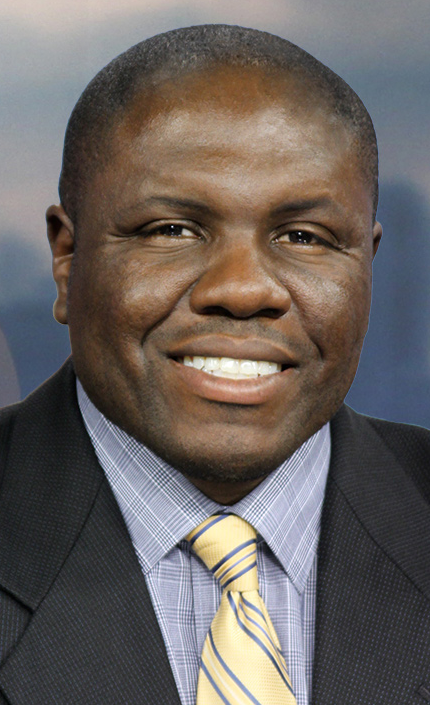 “It’s always our desire that everyone have a safe, enjoyable experience when attending NABJ events. We host our in-person events in accordance with local, state and federal health agency guidelines,” Lemon (pictured) wrote Wednesday.
“It’s always our desire that everyone have a safe, enjoyable experience when attending NABJ events. We host our in-person events in accordance with local, state and federal health agency guidelines,” Lemon (pictured) wrote Wednesday.
“The Centers for Disease Control and Prevention recently reported an increase in the spread of COVID in the U.S. We have also spoken with some members and guests who have notified us that they tested positive following our Birmingham convention. We have learned that some attendees at other conferences, some much larger than ours, have also been reporting positive cases. As we have in the past, we recommend immediate testing for anyone displaying symptoms or anyone who has had close contact with someone who tested positive.
“We also recommend the following tips:
“Follow local, state and CDC guidelines when planning and attending all events.
“Be precautious and take advantage of sanitization/protective options when traveling in and out of airports, attending large and in-door gatherings, and other activities.
“Based on your health status or personal preferences, consider wearing a mask and review the benefits of having updated vaccines/boosters. . . .”
Reaction to the NABJ response varied among those who caught the virus. Journal-isms sought comment from those infected, as it had earlier from NABJ.
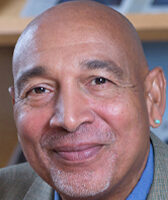 Boston journalist Derrick Z. Jackson (pictured) messaged, “It is good that NABJ publicly acknowledged that attendees (like me) were hit with Covid. It is reasonable to wonder if it was more than ‘some,’ as we are at the stage of the pandemic where half of people who test positive no longer report their infections to authorities (let alone the organizers of a convention they attended). I personally knew enough attendees who tested positive that the convention possibly passed the threshold of ‘some,’ including several seniors, who are at higher risk of worse outcomes.
Boston journalist Derrick Z. Jackson (pictured) messaged, “It is good that NABJ publicly acknowledged that attendees (like me) were hit with Covid. It is reasonable to wonder if it was more than ‘some,’ as we are at the stage of the pandemic where half of people who test positive no longer report their infections to authorities (let alone the organizers of a convention they attended). I personally knew enough attendees who tested positive that the convention possibly passed the threshold of ‘some,’ including several seniors, who are at higher risk of worse outcomes.
“Thus, I hope that in the runup to Chicago 2024, that NABJ truly continues to ‘monitor this situation for best health practices for attendees and ways the organization itself can promote safety — particularly if we remain in an uptick. For example, masks could be offered at convention entry points and organizers could consider staging more receptions/parties in outdoor venues. I enjoyed the NABJ hug-fest as much as anyone. Hopefully we can reduce the level where hugs can come with a price.”
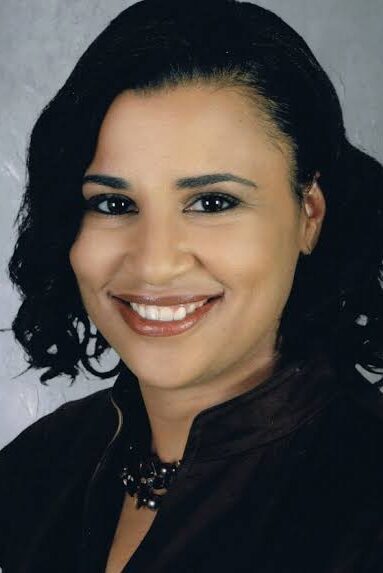 Chandra Thomas Whitfield pictured), host/producer of “Colorado Matters” on Colorado Public Radio, said, “Being sick for a week came with some really frustrating consequences that I eventually had to accept. Covid is real. Covid appears to be here to stay and we (including NABJ) need to do our part to keep it from wreaking further havoc on all of our lives because Black Journalists matter!” Her complete statement is below.
Chandra Thomas Whitfield pictured), host/producer of “Colorado Matters” on Colorado Public Radio, said, “Being sick for a week came with some really frustrating consequences that I eventually had to accept. Covid is real. Covid appears to be here to stay and we (including NABJ) need to do our part to keep it from wreaking further havoc on all of our lives because Black Journalists matter!” Her complete statement is below.
Another, who did not want to be named, said, “I think NABJ, like a lot of organizations and travelers this summer, kinda got caught off-guard by the speed and the aggressiveness of this new variant. I don’t fault them for that, nor am I surprised that NABJ didn’t have any mechanism in place to track infections (heck — the government has dismantled its own!). However, I think the best correspondence post-convention would simply note the anecdotal reports of infection and remind people to be vigilant, and to check with their convention acquaintances.”
 On Tuesday, Sutton (pictured) wrote in his column for NOLA.com that this was his third COVID infection, despite his own warnings to readers about the need to take precautions.
On Tuesday, Sutton (pictured) wrote in his column for NOLA.com that this was his third COVID infection, despite his own warnings to readers about the need to take precautions.
“Because I wasn’t required to mask up everywhere I went earlier this month, I didn’t.
“The handshakes, hugs and kisses flowed freely. I needed the mental boost of human contact more than I realized. Rona followed my every move and found a way in.
“Luckily, I wasn’t hospitalized. Didn’t even visit a doctor. By now I know what to do. I confirmed the steps with my primary care doc and his nurse: rest, drink plenty of fluids, take the prescribed Paxlovid and quarantine.
“I’ve already looked for the masks I hadn’t been using and pulled out multiple bottles of sanitizer.
“So here’s my late-summer travel tip: Whether you’re traveling far or near, if you’re in a crowd of strangers, take precautions. Trust me, you don’t want to become part of this latest surge.”
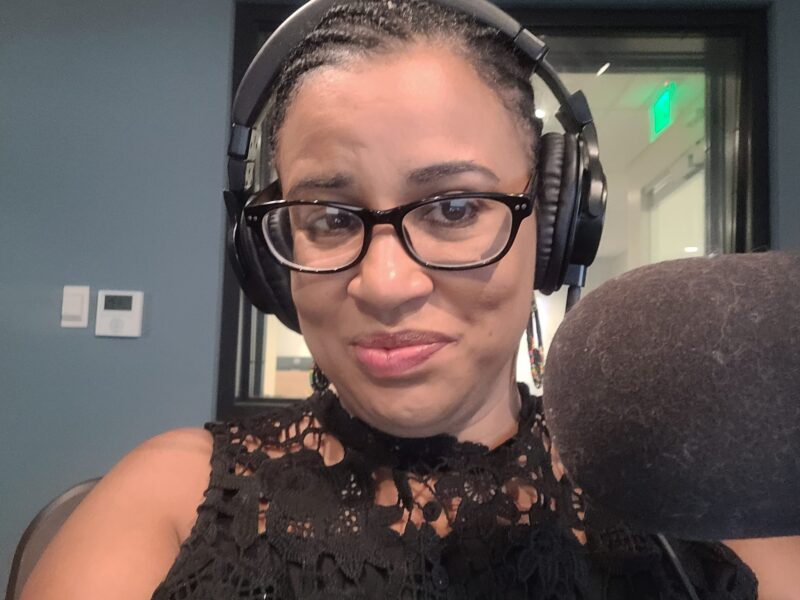
‘I Could Not Afford to Be Sick, But Alas It Happened’
By Chandra Thomas Whitfield, host, Colorado Public Radio
My situation was challenging because I went on vacation in Hawaii for a week (and you know what happened there) then almost directly from there to NABJ in Birmingham (where I launched my professional career). I brought my husband and sons with me, too. I woke up the Monday morning after the convention still in Alabama feeling ill. I flew home, wearing my mask at the airport and on my flight.
By the time I made it back home to Denver I knew something was wrong. It was all but confirmed Monday night when a fellow NABJ attendee told me that 2-3 people she had been around had tested positive and I should test. I tested positive shortly thereafter. The next day it was confirmed that my husband had it, too. It was disappointing and horrible timing because I host a show on Colorado Public Radio and my co-host was on vacation out of the country and our backup is on family leave. I had to push through and record my show from home and the next week, yes, seven whole days, was grueling in my household. We pushed through but it was tough.
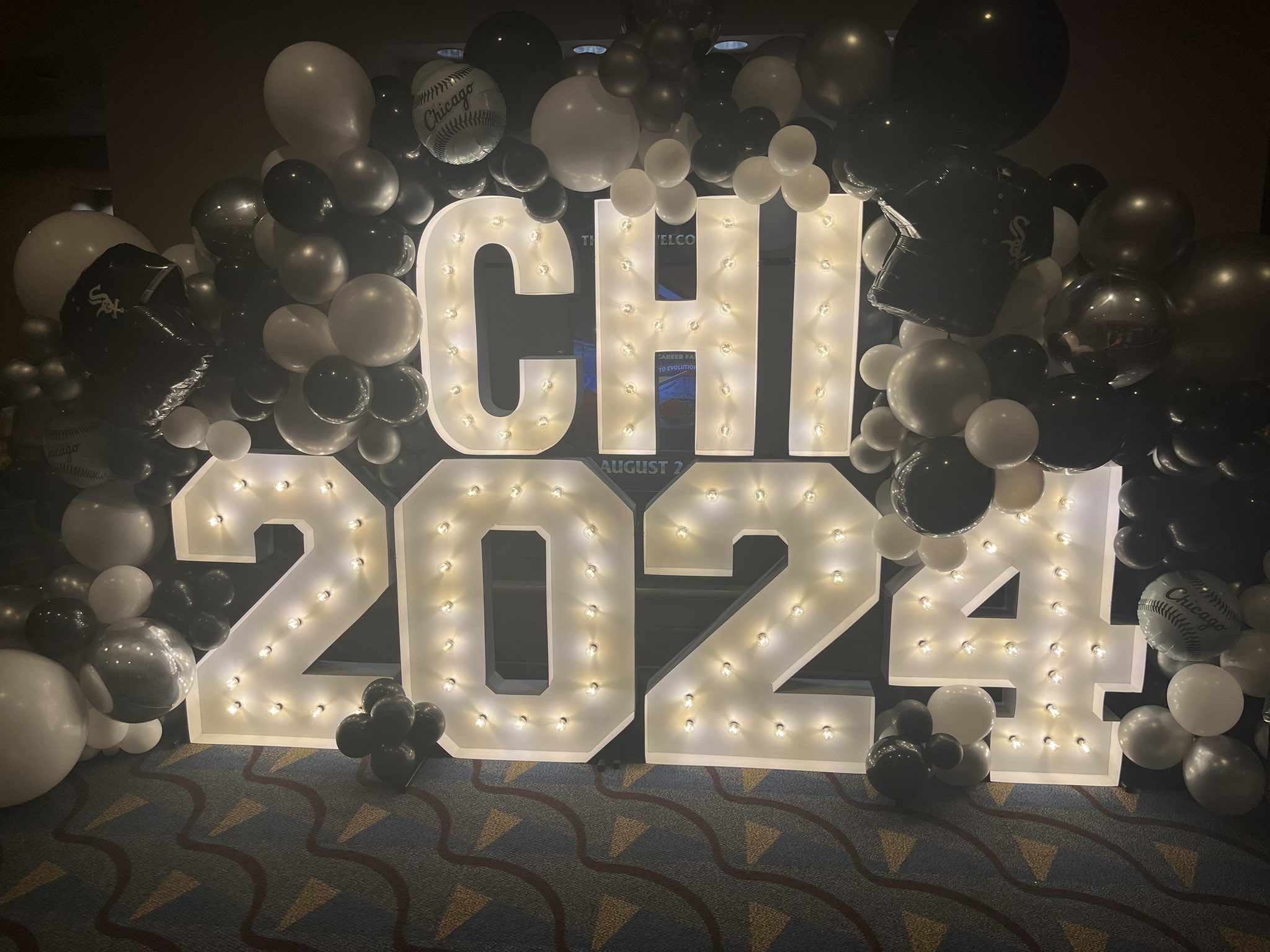 Today [Thursday] I learned that my mentee had contracted it, too, and he had only attended Wednesday and then Thursday morning. I don’t blame NABJ per se, but I think going forward keeping everyone safe(r) in Chicago needs to be top priority and at the forefront of the planning process. Alabama is HOT (believe me I know, I’m a Southern gal) so perhaps open-air events were not practical. I believe having more such events should be prioritized in Chi town. Journalists cannot afford to be sick. I could not afford to be sick, but alas it happened.
Today [Thursday] I learned that my mentee had contracted it, too, and he had only attended Wednesday and then Thursday morning. I don’t blame NABJ per se, but I think going forward keeping everyone safe(r) in Chicago needs to be top priority and at the forefront of the planning process. Alabama is HOT (believe me I know, I’m a Southern gal) so perhaps open-air events were not practical. I believe having more such events should be prioritized in Chi town. Journalists cannot afford to be sick. I could not afford to be sick, but alas it happened.
We are all feeling better in my household now, but being sick for a week came with some really frustrating consequences that I eventually had to accept. Covid is real. Covid appears to be here to stay and we (including NABJ) need to do our part to keep it from wreaking further havoc on all of our lives because Black Journalists matter!
- Ramsey Archibald, al.com: New EG.5 variant leads to summer rise in COVID hospitalizations in Alabama
- Heather M. Butts, JD, MPH, MA, New York Amsterdam News: The next COVID-19 wave may be starting now
- Justice B. Hill, cleveland.com: Why Cleveland will outshine Birmingham when it hosts National Association of Black Journalists’ 50th anniversary convention (Aug. 11)
- Janet Roach, WVEC-TV, Norfolk, Va.: A place with an ugly history, Selma was pretty kind to my family
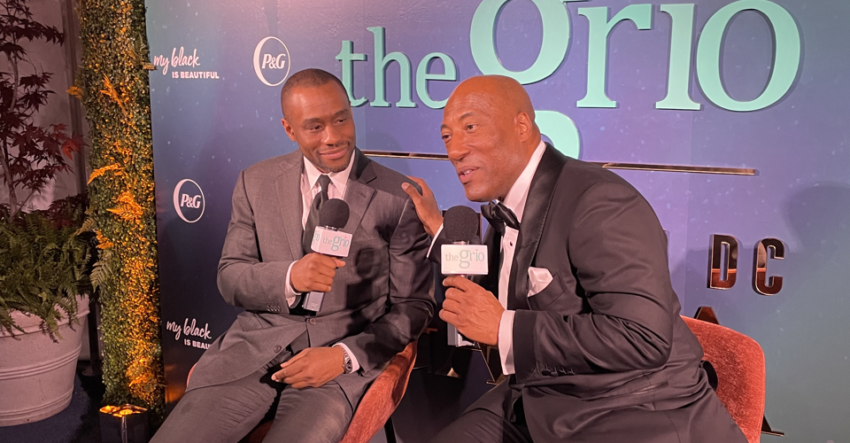
Paramount Decides Not to Sell BET Networks
“Paramount Global has dropped its plans to sell a majority stake in its BET Media Group, which includes the VH1 and BET cable networks and BET+ streaming service, according to people familiar with the situation,” Jessica Toonkel reported Wednesday for The Wall Street Journal.
“The company notified bidders Wednesday evening that it decided to end the sale process because it concluded that a sale wouldn’t result in any meaningful deleveraging of its balance sheet, the people said.
“Initial bidders for the stake in BET included basketball legend Shaquille O’Neal, who had teamed up with TV producer Kenya Barris and rapper 50 Cent and Group Black, The Wall Street Journal previously reported.
“Other bidders included actor-producer Tyler Perry, who was backed by private-equity firm Ariel Alternatives, a subsidiary of asset-management company Ariel Investments; Sean ‘Diddy” Combs, backed by investment firm HarbourView Equity Partners; and media entrepreneur Byron Allen, the Journal reported.
“The company had received bids for the stake ranging from around $2 billion to around $3 billion, according to some of the people familiar with the situation.
“The failed sales process is a sign of how challenging the traditional cable television business has become, as consumers cut the cord in favor of streaming services instead.
“As of the end of the first quarter, only 45% of U.S. households had cable or satellite TV, the lowest level in 37 years, according to research firm MoffettNathanson.
“Earlier this week, TV-measurement service Nielsen reported that television accounted for less than 50% of total viewing time in the U.S. last month, which it said had never happened before. . . .”
Writing for The Root, Stephanie Holland told readers, “Unfortunately, Paramount holding on to BET means the network will likely continue on its current course of repetitive, uninteresting programming. Right now, we get the same movies and TV series playing over and over every day, all day. The network has a few popular original programs, but those mostly stream on BET+. What’s really frustrating about this is that Paramount Global doesn’t seem to understand the importance or legacy of BET. . . .”
However, BET did introduce “America in Black” in February, a collaboration with CBS airing monthly that features original reporting by such journalists as Gayle King, James Brown, Ed Gordon, Michelle Miller, Jericka Duncan, Vladimir Duthiers, Marc Lamont Hill, Wesley Lowery, Errol Barnett, Danya Bacchus and Skyler Henry.
Trudeau Elected Indigenous Journalists Leader
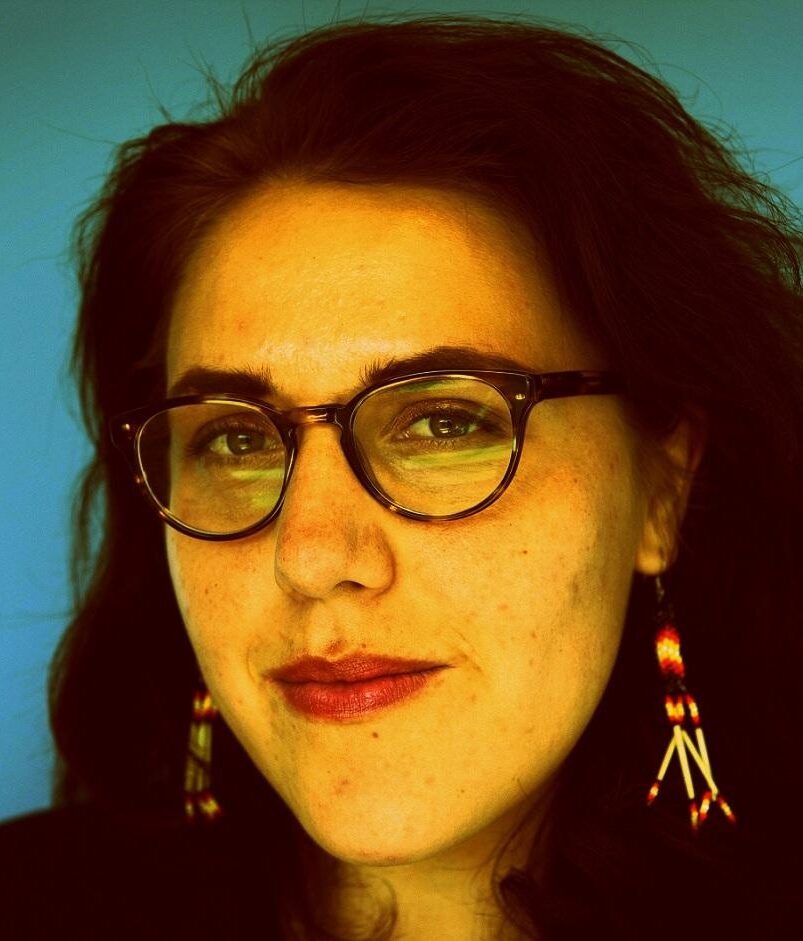 The board of directors of the newly renamed Indigenous Journalists Association, formerly the Native American Journalists Association, has elected Christine Trudeau (pictured), a freelance writer who has served as vice president, treasurer and elections chair, as president of the organization.
The board of directors of the newly renamed Indigenous Journalists Association, formerly the Native American Journalists Association, has elected Christine Trudeau (pictured), a freelance writer who has served as vice president, treasurer and elections chair, as president of the organization.
“A citizen of the Prairie Band Potawatomi Nation, Christine Trudeau holds a BFA in Creative Writing from the Institute of American Indian Arts,” reads a short bio on her website. “She is a former intern with the Diversity Department at NPR, and continues to freelance with National Native News, Native Peoples Magazine, and NPR. Trudeau is a candidate in the Masters of Science Program for Broadcast Journalism at Columbia University’s Journalism School, in NYC. Currently she is raising funds for her tuition at the Columbia School of Journalism.”
Others on the executive committee, chosen Aug. 17, are Jourdan Bennett-Begaye (Diné), vice president; Angel Ellis (Muscogee Nation), treasurer; and Savannah Maher (Mashpee Wampanoag), secretary.
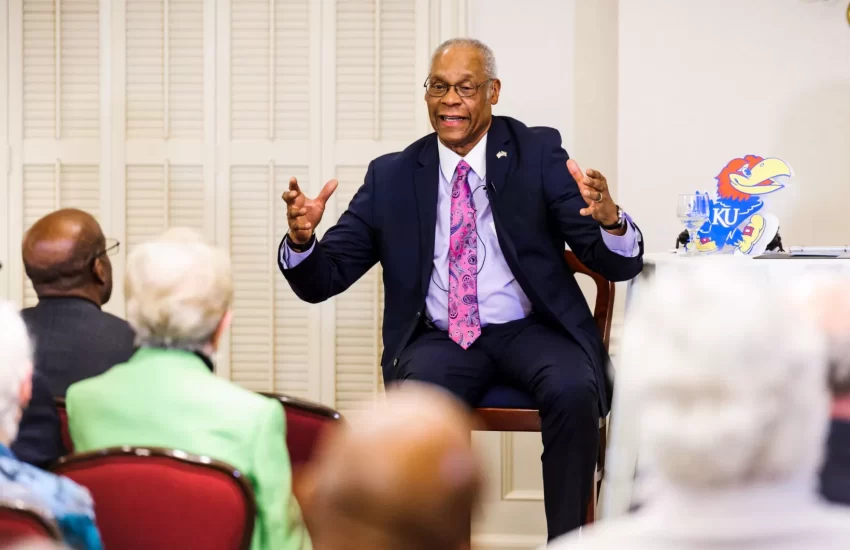
Delano Lewis, NPR’s Only Black CEO, Dies at 84
“Delano Lewis, a longtime figure in Washington business and politics whose wide-ranging career included leading NPR during divisive budget battles and handling difficult diplomacy in South Africa as U.S. ambassador seeking to expand the fight against AIDS, died Aug. 16 at a hospice facility in Las Cruces, N.M.,” Brian Murphy reported Friday for The Washington Post. “He was 84.
“The death was announced in a family statement. No cause was given.”
Brenda Wilson, a reporter at NPR while Lewis was its first and only Black CEO, told Journal-isms that Lewis “was never quite fully appreciated by the folks at NPR whose fat he pulled out of the fire, when Congress was determined to destroy it, spared it PBS’ trials.”
Adam Powell III, who was NPR’s vice president of news and information from 1987 to 1990, messaged, “He was a terrific leader. And he was so low-key that many in the building did not even know much of what he did to promote NPR on the Hill and elsewhere.”
Yet NPR was the subject of complaints of unequal treatment in those days. Sunni M. Khalid, a reporter who is Black and Muslim, told Journal-isms that he filed suit alleging racial and religious discrimination in 1996 and that the case was settled in 2003.
Lewis was NPR’s CEO from 1993 to 1998. In a 1995 Washington Post op-ed arguing against “privatizing” public radio, Lewis wrote:
“Public radio is a system in the dictionary sense of the word: ‘an assemblage united by interdependence, an organic and organized whole.’
“Tinkering with one part of that system will affect all the others, so that what may appear at first blush to be a perfectly reasonable change could turn out to be the beginning of the end.
“Consider the case of rural and minority public radio stations, which are certain to be the hardest hit by any reductions in federal funding. Speaker [Newt] Gingrich has suggested that perhaps these stations could be funded directly, with all the rest being left on their own.
“On its face, that may sound reasonable. But public radio is an organic and organized whole, not just a collection of individual stations and program producers. Most of the cost of the national programming so valued by public radio’s 18.2 million weekly listeners — ‘Morning Edition,’ ‘All Things Considered,’ ‘Weekend Edition,’ ‘Car Talk’ — is shared by all stations that purchase this programming. If stations of any size have less money to spend, many of those in large and medium markets will decide they can no longer afford the national programming.
“As the pool of purchasing stations becomes smaller, the cost to those remaining becomes higher. Finally, a critical mass is reached, and the system collapses. . . .”
- Kansas Public Radio: KPR Presents: Delano Lewis
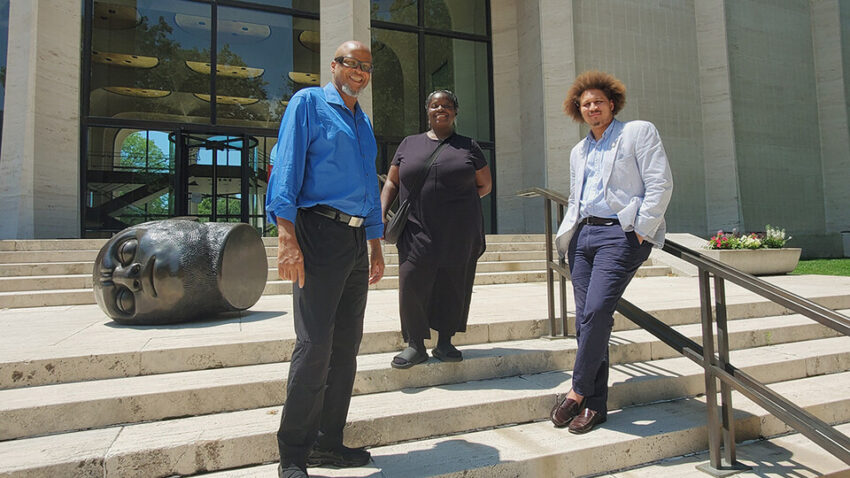
Conservatives Target Program for Black Filmmakers
“A legal nonprofit that has targeted colleges and universities offering preferential treatment based on race accused the University of Nebraska-Lincoln of racial discrimination for creating and supporting a residency program for Black filmmakers,” Chris Dunker wrote Aug. 7 for the Lincoln (Neb.) Journal Star.
“The Equal Protection Project, which was involved in the U.S. Supreme Court case challenging Harvard University’s race-conscious admission policies, filed the complaint dated Sunday against UNL with the U.S. Department of Education’s Office for Civil Rights.
“In its complaint, the Equal Protection Project alleges a partnership between UNL’s Johnny Carson School of Emerging Media Arts and the New York City-based nonprofit Black Public Media violated the Equal Protection Clause of the 14th Amendment as well as the Civil Rights Act.
“The Black Public Media Residency program between the two entities was a partnership to serve ‘Black filmmakers, artists and creative technologists’ by offering them access to and training on emerging technology equipment and software.
“The residency program, which ran for several weeks in July in both 2022 and 2023, ‘seeks to develop the talent of producers of color,’ specifically projects where ‘a person of African descent is in a key creative position’ such as writer, director or producer. . . .
“Three filmmakers and artists — Eboni Zamani of Philadelphia, J. Bird Lathon of Clarksville, Tennessee, and Conrad Burgos of Buffalo, New York — were selected for the second year of the residency program funded through a $40,000 award from the National Endowment for the Arts, which ran between July 10-21. . . .”
Attempts Friday to secure updates from the university and the U.S. Department of Education were unsuccessful.
- Sarah Rumpf-Whitten, Fox News: Kansas State University faces civil rights complaint over ‘racially discriminatory’ scholarship
More Than 100 Outlets to Pick Up Murrow Awards
The Radio Television Digital News Association (RTDNA) unveiled the national winners of the 2023 Edward R. Murrow Awards on Tuesday. “More than 100 outlets were honored for their exceptional contributions in digital, radio, and television journalism,” it said.
The winners are listed here.
They include:
- Small Digital News Organization: Center for Public Integrity: Investigating Inequality – Washington D.C.
- Large Digital News Organization: The Texas Tribune – Austin, Texas
- Small Market Radio: WCHS MetroNews Radio – Charleston, West Virginia
- Large Market Radio: Texas Public Radio News – San Antonio, Texas
- Radio Network: ABC News
- Small Market Television: WPRI – Providence, R.I.
- Large Market Television: WFAA – Dallas
- Television Network: ABC News
Separately, the Online Journalism Association announced some of its award winners; others are to be revealed Aug. 26.
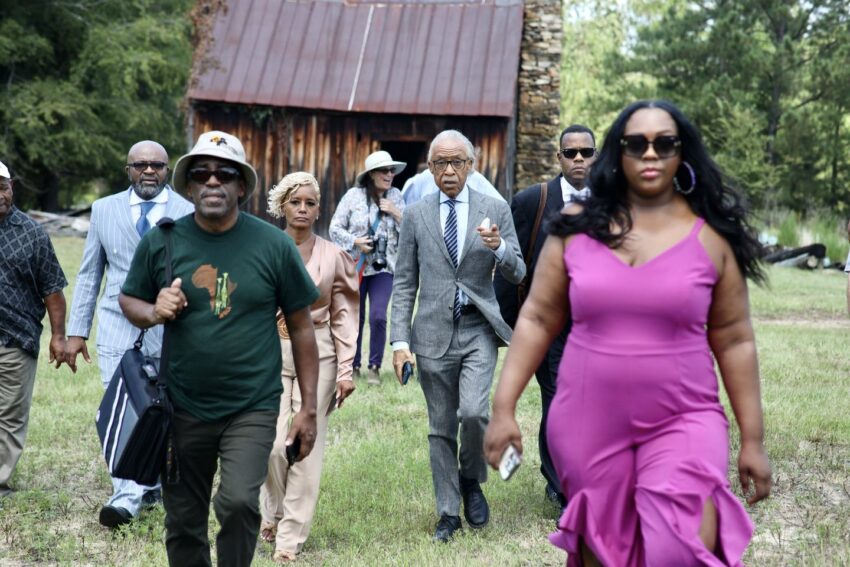
Sharpton Revisits Ancestry in Response to DeSantis
On Aug. 7, the Rev. Al Sharpton and his daughters revisited their family’s ties to an avowed segregationist to teach Florida Gov. Ron DeSantis a lesson about slavery.
That took journalist Austin Fenner back to 2007, when Fenner, then at the Daily News in New York, revealed that Sharpton’s ancestors were slaves owned by relatives of the late South Carolina Sen. Strom Thurmond. The Daily News arranged to have Sharpton’s ancestry traced.
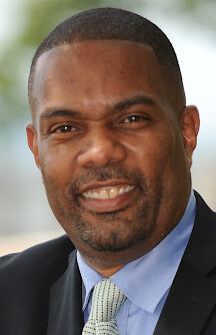 Fenner (pictured) asked Sharpton then if he would ever think about changing his Sharpton name. “I’ll never change my name. I want his (white Alexander Sharpton) heirs to know that the Sharpton name is the answer to what they did,” he said. “I want that name (Al Sharpton) to be known as the name of a freedom fighter.”
Fenner (pictured) asked Sharpton then if he would ever think about changing his Sharpton name. “I’ll never change my name. I want his (white Alexander Sharpton) heirs to know that the Sharpton name is the answer to what they did,” he said. “I want that name (Al Sharpton) to be known as the name of a freedom fighter.”
Alexander Sharpton, a South Carolina planter, purchased a 5-year-old boy, Coleman Sharpton Sr., for $276 in 1839.
Last week’s visit by Al Sharpton, president of the National Action Network and an MSNBC host, was prompted by new Florida standards that now require the state’s teachers to instruct middle-school students that enslaved people “developed skills which, in some instances, could be applied for their personal benefit.”
Fenner writes, “Sharpton with his daughters, Ashley, 34, and Dominique, 36, stood inside a rickety 200 year old slave shack, a two room brown pinewood box, that his great-grandfather, Coleman Sharpton Sr., was forced to live in.
“ ‘I traveled to Edgefield on the eve of the March on Washington to remind myself and my daughters what we are still fighting for all these years later. They are four generations removed from slavery, and I wanted us all to appreciate how far we’ve come but also how far we still must go. We all understood it as we walked the grounds Coleman Sharpton was forced to work as a slave.
“We saw it in the beams our ancestors set in the master’s house. We certainly felt it as we stood in the shack where an untold number of slaves lived. . . .”
50 Years: 3 Execs Who Helped Make Hip-Hop
Variety’s list of “The 50 Greatest Hip-Hop Executives of All Time” — part of a media-wide commemoration of hip-hop’s 50th year — includes BET executives Stephen Hill and Debra Lee and media mogul Cathy Hughes.
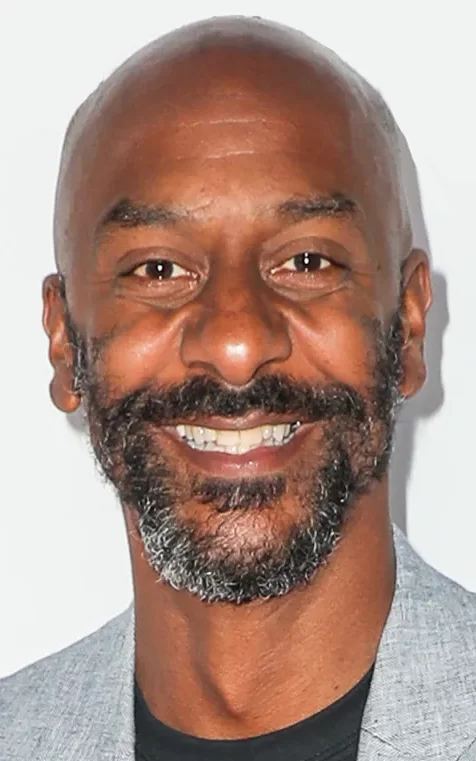 About Hill (pictured), the publication said Aug. 2, “In his nearly two-decade tenure at BET, Hill rose to become president of programming and brought [hip-hop] with him every step of the way. He not only helped launch the BET Hip-Hop Awards but played a key role in the landmark hip-hop music video show ‘106 & Park,’ a central source of music videos and hip-hop culture for 90 minutes, five days a week.
About Hill (pictured), the publication said Aug. 2, “In his nearly two-decade tenure at BET, Hill rose to become president of programming and brought [hip-hop] with him every step of the way. He not only helped launch the BET Hip-Hop Awards but played a key role in the landmark hip-hop music video show ‘106 & Park,’ a central source of music videos and hip-hop culture for 90 minutes, five days a week.
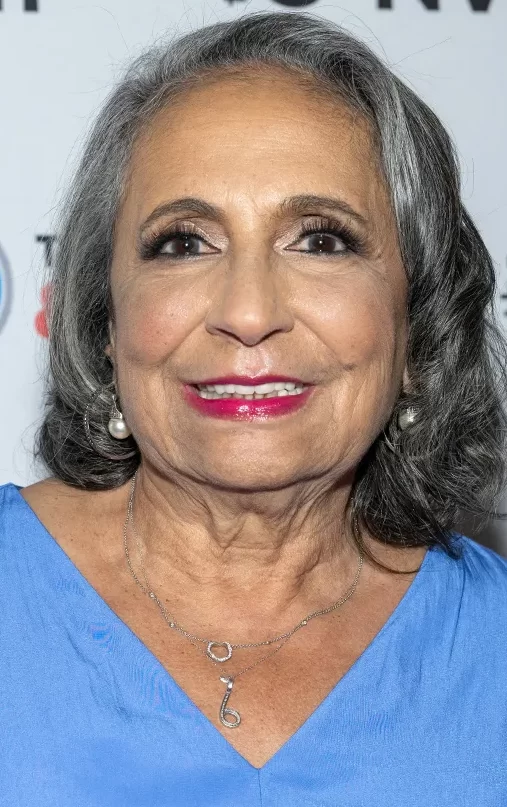 About Hughes (pictured): “She may not be a household name, but Hughes is a trailblazer for both female music executives and hip-hop culture. As the first female VP and general manager at WHUR in Washington, D.C., she pioneered the ‘Quiet Storm’ format. She then founded Urban One (originally known as Radio One) in 1980, which became the largest Black-owned and -operated radio and television broadcast company in the U.S. . . .
About Hughes (pictured): “She may not be a household name, but Hughes is a trailblazer for both female music executives and hip-hop culture. As the first female VP and general manager at WHUR in Washington, D.C., she pioneered the ‘Quiet Storm’ format. She then founded Urban One (originally known as Radio One) in 1980, which became the largest Black-owned and -operated radio and television broadcast company in the U.S. . . .
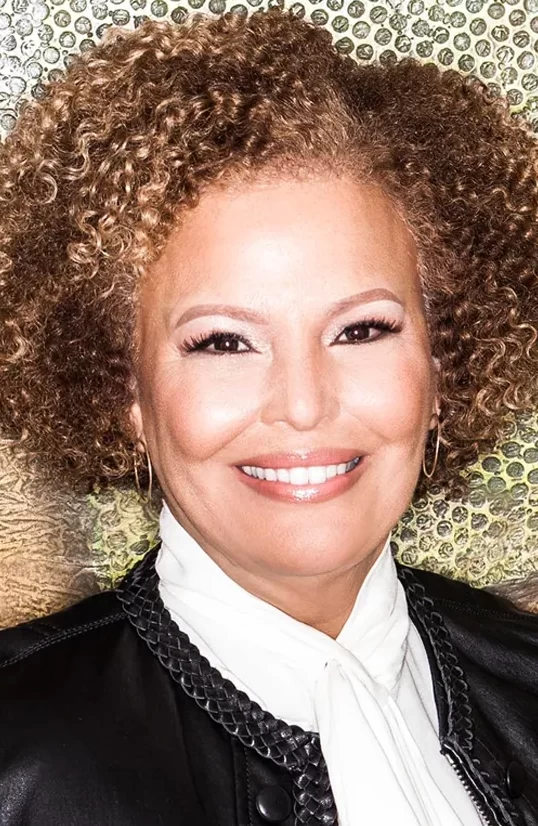 About Lee (pictured), Variety said, “A member of the Broadcasting & Cable Hall of Fame, Lee was instrumental in making hip-hop a pillar of pop culture across all media, largely via her 32-year career at BET’s parent company, Viacom. While there, she oversaw its influential publishing division, helping to shape hip-hop’s public image. . . .”
About Lee (pictured), Variety said, “A member of the Broadcasting & Cable Hall of Fame, Lee was instrumental in making hip-hop a pillar of pop culture across all media, largely via her 32-year career at BET’s parent company, Viacom. While there, she oversaw its influential publishing division, helping to shape hip-hop’s public image. . . .”
- Associated Press package: 50 Years of Hip-Hop
- Brenton Blanchet, People: 50 Years of Hip-Hop, According to Slick Rick, Latto, Pusha-T and Over 30 Other Musicians (Aug. 11)
- August Brown, Kenan Draughorne, Mikael Wood, Keith Murphy, Julian Kimble, Los Angeles Times: The 50 greatest moments in hip-hop history (Aug. 7)
- Taji Burris, Baltimore Banner: 50 Years of hip-hop and references to Baltimore in songs
- Justin Charity, The Ringer: Hip-Hop Is 50 Years Old. What Might Its Next 50 Years Look Like?
- Valerie Complex, Deadline: AAFCA [African American Film Critics Association] Celebrates Hip-Hop’s 50th With Screening Series Dedicated to Hip-Hop Films (July 17)
- Karu F. Daniels and Leonard Greene, Daily News, New York: Hip hop celebrates 50 years of history, from Bronx beginnings to global glory
- Nelson George with Amna Nawaz, “PBS NewsHour,” PBS: Hip-hop was born 50 years ago. Nelson George discusses its evolution and legacy (Aug. 11)
- LZ Granderson, Los Angeles Times: How hip-hop helped me through grief
- Noor Lobad, WWD: How Hip-hop Has Shaped Beauty Trends Over the Decades (July 28)
- Keith McMillan, Washington Post: Hip-hop is turning 50. Here’s why this moment matters. (Aug. 10)
- New York Amsterdam News: Spotify unveils mural celebrating 50 years of hip-hop
- New York Times Magazine Issue: How Hip-Hop Conquered the World (Aug. 10, updated Aug. 18)
- C. Brandon Ogbunu and Lupe Fiasco, Wired: Hip Hop 2073: A Vision of the Future, 50 Years From Now (Aug. 11)
- B.A. Parker, Gene Demby, Courtney Stein, Dalia Mortada, “Code Switch,” NPR: From ‘fight the power’ to advertising for the power: hip-hop turns 50 (Aug. 9)
- Dean Richards, Robin Baumgarten, WGN-TV, Chicago: Kevin Powell reflects on decades of writing about Tupac and the history of Hip Hop (March 31)
- Rolling Stone: The 150 Greatest Hip-Hop Videos of All Time (Aug. 10)
- Rolling Stone: 50 Innovators Shaping Rap’s Next 50 Years (Aug. 11)
- The Root and seven sister sites: Hip-Hop: ’73 Till Infinity (series)
- Juana Summers, Kat Lonsdorf, Patrick Jarenwattananon, Noah Caldwell, NPR: Hip-hop at 50: A history of explosive musical and cultural innovation (Aug. 11)
- WABC-TV, New York: 50 Years of Hip Hop: The Bronx and Beyond | Full Special
Short Takes
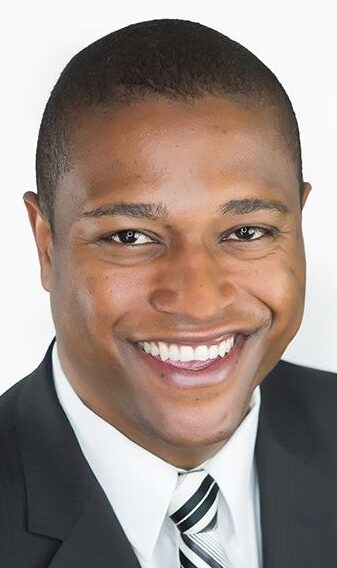 Jonathan Abrams (pictured), formerly of The New York Times sports department, is taking on a newly created reporting role focused on national culture news, a priority for the Culture desk, the Times announced Tuesday. The Times said July 10 it would disband its sports department and rely on coverage of teams and games from its website The Athletic, both online and in print. While the Times has pledged that journalists on the sports desk will move to other roles in the newsroom and no layoffs were planned, not all of those in the department have been placed in new roles, staff members have told Journal-isms.
Jonathan Abrams (pictured), formerly of The New York Times sports department, is taking on a newly created reporting role focused on national culture news, a priority for the Culture desk, the Times announced Tuesday. The Times said July 10 it would disband its sports department and rely on coverage of teams and games from its website The Athletic, both online and in print. While the Times has pledged that journalists on the sports desk will move to other roles in the newsroom and no layoffs were planned, not all of those in the department have been placed in new roles, staff members have told Journal-isms.
- “Please use the term ‘Hawaiʻi residents’ to refer to people who live in Hawaiʻi. The term ‘Hawaiian’ should only be used to refer to the islands’ Indigenous people.” That’s advice from the Hawaii chapter of the Asian American Journalists Association and ʻAhahui Haku Moʻolelo (Hawaiian Journalists Association). They issued tips on covering the devastating Lāhainā wildfire, the deadliest in the United States in more than 100 years. More than 110 people have died. “Visit the ʻAhahui Haku Moʻolelo website at HawaiianJournalists.org for a list of additional resources regarding Hawaiian history, Hawaiian language, the use of diacritical marks, and more,” the groups said Thursday.
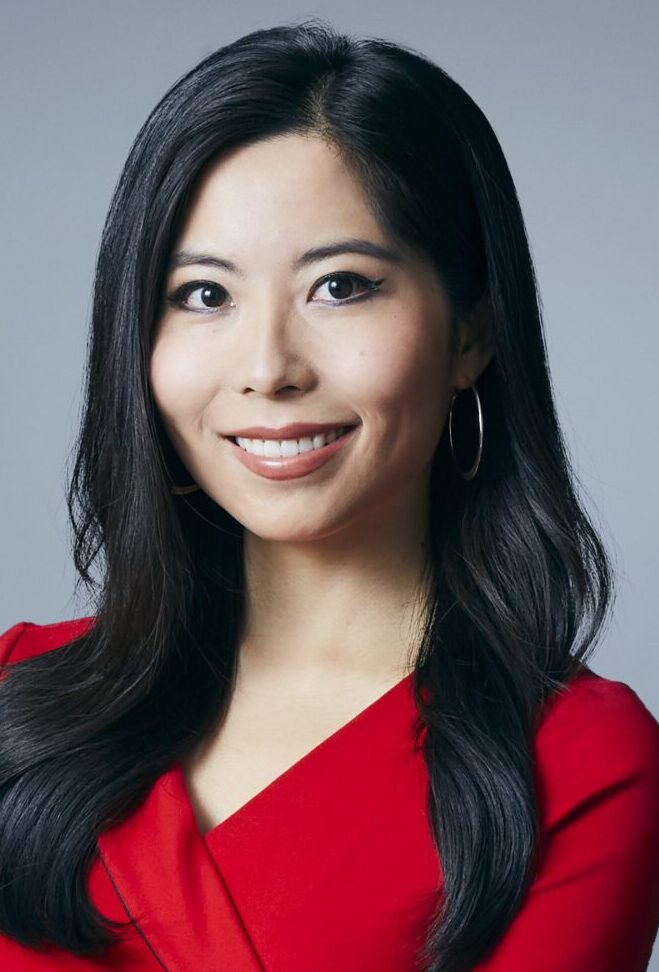 “Selina Wang (pictured) is joining ABC News as senior White House correspondent after being based at CNN’s Beijing bureau as the network’s sole correspondent in China,” Ted Johnson reported Tuesday for Dateline. “The network also announced the hires of Rachael Bade and Asma Khalid to their political team. Bade will be contributing political correspondent and Khalid will be a contributor. . . .”
“Selina Wang (pictured) is joining ABC News as senior White House correspondent after being based at CNN’s Beijing bureau as the network’s sole correspondent in China,” Ted Johnson reported Tuesday for Dateline. “The network also announced the hires of Rachael Bade and Asma Khalid to their political team. Bade will be contributing political correspondent and Khalid will be a contributor. . . .”
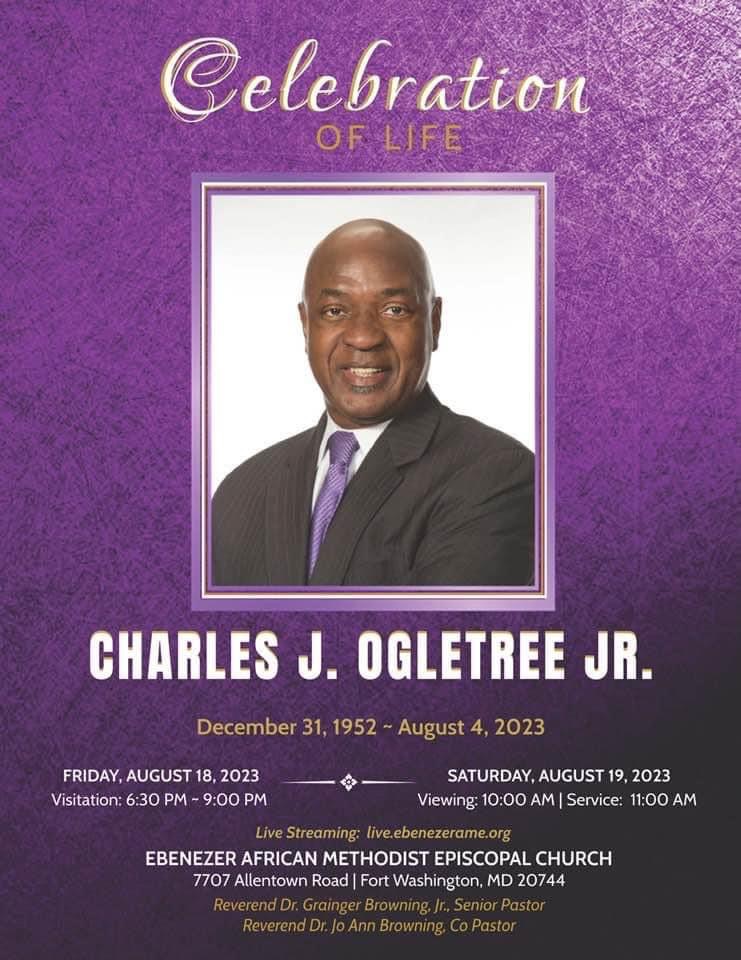 A service for Charles J. Ogletree Jr., friend to journalists, law professor and civil rights scholar with a distinguished career at Harvard Law School, is scheduled for Saturday, Aug. 19, at 11 a.m. at Ebenezer African Methodist Episcopal Church, 7707 Allentown Road, Fort Washington, Md 20744, in the Washington, D.C. suburbs. It is to be livestreamed at ebenezerame.org. He died Aug. 4 after a lengthy battle with Alzheimer’s disease. He was 70.
A service for Charles J. Ogletree Jr., friend to journalists, law professor and civil rights scholar with a distinguished career at Harvard Law School, is scheduled for Saturday, Aug. 19, at 11 a.m. at Ebenezer African Methodist Episcopal Church, 7707 Allentown Road, Fort Washington, Md 20744, in the Washington, D.C. suburbs. It is to be livestreamed at ebenezerame.org. He died Aug. 4 after a lengthy battle with Alzheimer’s disease. He was 70.
- “A new documentary is hitting The HISTORY Channel this weekend, and renowned longtime actor Morgan Freeman is bringing it to viewers,” the Grio reported. ” ‘761st Tank Battalion: The Original Black Panthers,’ which premieres Sunday night, dives into the story of the first Black tank unit to serve in combat during World War II. . . .”
 The Naismith Memorial Basketball Hall of Fame was set to bestow its prestigious Curt Gowdy Media Awards on several accomplished reporters and on-air personalities Friday night in a ceremony from Uncasville, Conn.,” according to the Barrett Sports Media. “Marc Spears (pictured) is winning the award for excellence in print media for his work over the more than three decades he has been in the field. The early stages of his career were rooted in Denver, Colo. as a beat reporter at The Denver Post for its coverage of Denver Nuggets basketball. Before working in Denver, he worked at smaller outlets in Tulsa, Okla., Los Angeles, Calif. and Louisville, Ky.” Spears also chaired the Sports Task Force of the National Association of Black Journalists. Also being honored are ESPN’s Holly Rowe and CBS Sports.
The Naismith Memorial Basketball Hall of Fame was set to bestow its prestigious Curt Gowdy Media Awards on several accomplished reporters and on-air personalities Friday night in a ceremony from Uncasville, Conn.,” according to the Barrett Sports Media. “Marc Spears (pictured) is winning the award for excellence in print media for his work over the more than three decades he has been in the field. The early stages of his career were rooted in Denver, Colo. as a beat reporter at The Denver Post for its coverage of Denver Nuggets basketball. Before working in Denver, he worked at smaller outlets in Tulsa, Okla., Los Angeles, Calif. and Louisville, Ky.” Spears also chaired the Sports Task Force of the National Association of Black Journalists. Also being honored are ESPN’s Holly Rowe and CBS Sports.
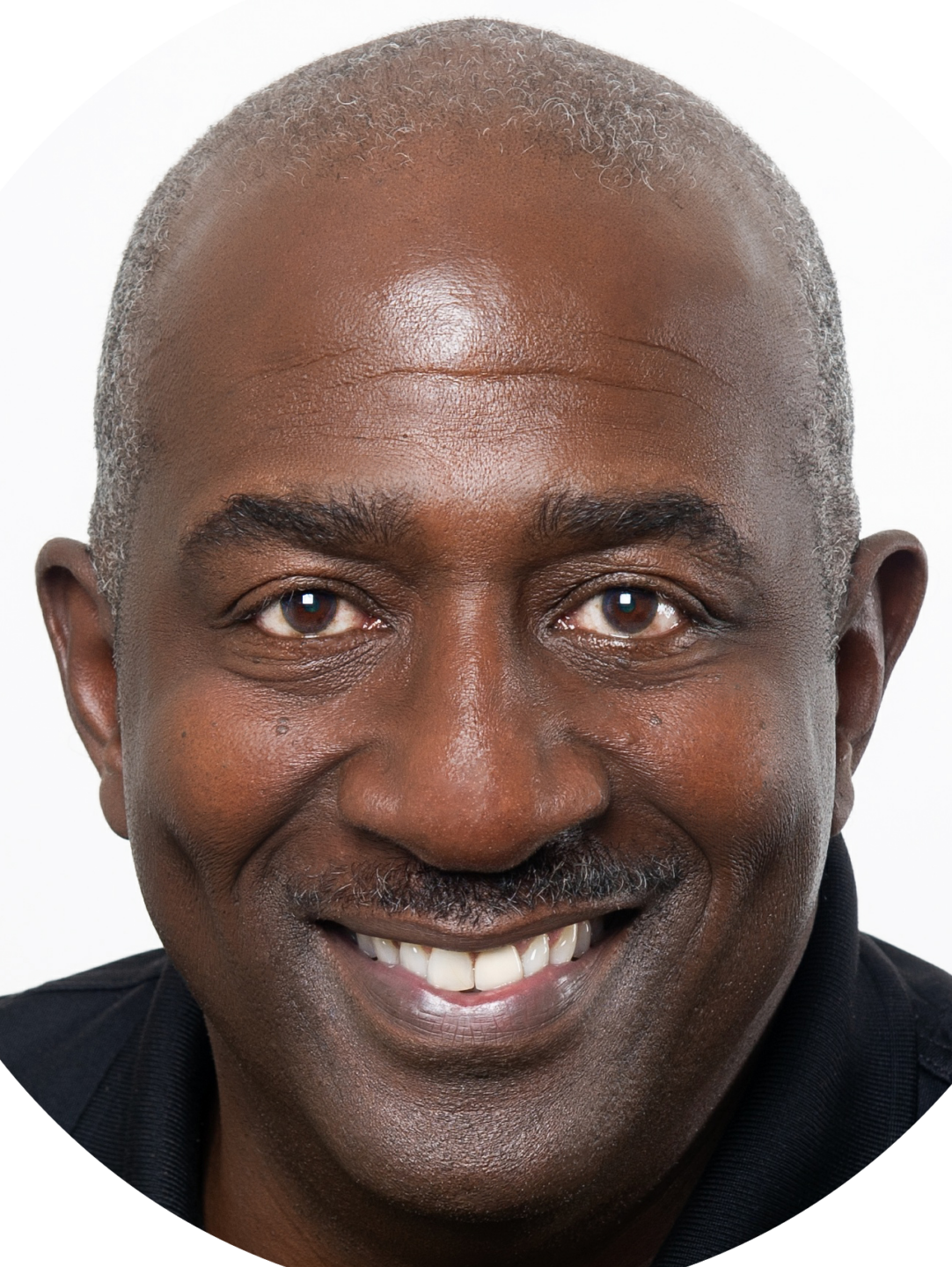 Gregory Moore (pictured), editor-in-chief of The Denver Post from 2002 to 2016, is now co-founder and chief executive officer at Klowtify, “a strategic media consulting company,” Moore announced on social media.
Gregory Moore (pictured), editor-in-chief of The Denver Post from 2002 to 2016, is now co-founder and chief executive officer at Klowtify, “a strategic media consulting company,” Moore announced on social media.
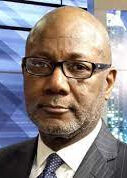 “It’s now been about two weeks since my tenure ended as Head of Scripps News,” Eric Ludgood (pictured) announced on social media. “They called it a ‘job elimination.’ The years there represent some of the best times of my career. The Newsy/Scripps News team should be proud of the work they produced during the last two years. For me, I am most proud of the special newsroom culture we were working to build. That culture has been so evident in the conversations I’ve had with co-workers since my departure. I am grateful to all who have reached out. I will cherish your thoughtfulness. So, what’s next? I’ve had a number of interesting interviews about new opportunities, so we’ll just have to see where the discussions lead.”
“It’s now been about two weeks since my tenure ended as Head of Scripps News,” Eric Ludgood (pictured) announced on social media. “They called it a ‘job elimination.’ The years there represent some of the best times of my career. The Newsy/Scripps News team should be proud of the work they produced during the last two years. For me, I am most proud of the special newsroom culture we were working to build. That culture has been so evident in the conversations I’ve had with co-workers since my departure. I am grateful to all who have reached out. I will cherish your thoughtfulness. So, what’s next? I’ve had a number of interesting interviews about new opportunities, so we’ll just have to see where the discussions lead.”
- “The Africa Channel is promoting Liberty & Justice, the first Made In Africa swimwear line,” Jon Lafayette reported Friday for Broadcasting & Cable. “The channel produced a three-minute video that includes interviews with Sean Combs’ twin daughters, Jesse and D’Lila Combs, who modeled the swimwear, actor and singer Quincy Brown and LIberty & Justice founders Chid LIberty and Georgie Badiel Liberty. . . . The video is running on The Africa Channel during promotional time.
- “Journalists and media professionals have suffered disproportionately from violations and displacement since the start of the current Sudan conflict, and are often ‘classified’ according to their views on the conflict, a prominent Sudanese broadcaster says,” Dabanga News reported Thursday from Khartoum, Sudan. Sudanese radio broadcaster Hala Hamed was responding to questions about a joint statement on Monday by 17 Sudanese media institutions and press organizations, “including Dabanga Radio TV Online, highlighting the critical state of press freedom in Sudan. . . .”
- “More than 80% of Afghanistan’s women journalists have had to stop working since 15 August 2021,” when the Taliban arrived in the Afghan capital, Kabul, Reporters Without Borders said Aug. 10. And of the roughly 12,000 journalists – male and female – that Afghanistan had in 2021, more than two thirds have abandoned the profession. The media have been decimated in the past two years. . . .”

- The International Press Institute said it is “shocked and saddened by the killing of two Guatemalan journalists by unidentified assailants on Friday, August 11, and calls on the local authorities to conduct a thorough investigation and bring the perpetrators to justice.” Edin Alonso and Hugo Gutiérrez were administrators of the Noticias Caballo Blanco news page on Facebook, which reports on the events in the Caballo Blanco region, where the armed attack took place. “Alonso and Gutiérrez were on a motorcycle returning from an assignment covering the death of a local woman when they were attacked by unidentified assailants on a moped and shot multiple times, according to local media sources. Both suffered gunshot wounds to various parts of the body and died at the scene. . . .”
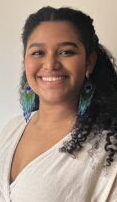 “Despite the fact that Colombia’s vice-president is an Afro-Colombian woman — Francia Márquez —, racism is still firmly rooted in this society’s foundations, according to experts,” Florencia Pagola reported Aug. 10 for LatAm Journalism Review. Faced with this situation, how do the mass media cover the facts of the Afro-descendant population in Colombia? Afro-Colombian journalist Beatriz Valdés Correa (pictured), who just won a Gabo Award, which “recognizes the best of journalism in Spanish and Portuguese in the Americas, Spain and Portugal,” said, “There is a racist bias with the way in which Afro-descendant peoples are looked at. They carry on with the idea that there’s only poverty and violence there. It’s [considered] less important because it’s what happens to Black people.”
“Despite the fact that Colombia’s vice-president is an Afro-Colombian woman — Francia Márquez —, racism is still firmly rooted in this society’s foundations, according to experts,” Florencia Pagola reported Aug. 10 for LatAm Journalism Review. Faced with this situation, how do the mass media cover the facts of the Afro-descendant population in Colombia? Afro-Colombian journalist Beatriz Valdés Correa (pictured), who just won a Gabo Award, which “recognizes the best of journalism in Spanish and Portuguese in the Americas, Spain and Portugal,” said, “There is a racist bias with the way in which Afro-descendant peoples are looked at. They carry on with the idea that there’s only poverty and violence there. It’s [considered] less important because it’s what happens to Black people.”
- “A firm which was contracted to moderate Facebook posts in East Africa has said with hindsight it should not have taken on the job,” Chris Vallance reported Wednesday for the BBC. “Former Kenya-based employees of Sama — an outsourcing company — have said they were traumatised by exposure to graphic posts. Some are now taking legal cases against the firm through the Kenyan courts. Chief executive Wendy Gonzalez said Sama would no longer take work involving moderating harmful content. Some former employees have described being traumatised after viewing videos of beheadings, suicide and other graphic material at the moderation hub, which the firm ran from 2019. . . .”
- “Google plans to train 20,000 Nigerian women and youth in digital skills and provide a grant of $1.6 million to help the government create one million digital jobs in the country, its Africa executives said on Tuesday,” Felix Onuah reported from Nigeria for Reuters.
- “After more than three years of work, Alma Preta, a Brazilian journalism agency specializing in racial issues, launched last Wednesday, Aug. 10 the first edition of its writing manual,” André Duchiade reported Tuesday for LatAm Journalism Review. “The publication summarizes the agency’s conception of journalism, with comprehensive information ranging from newsworthiness criteria, to methods for approaching issues from anti-racist angles, to purely stylistic issues such as paragraph length recommendations, to entries with terms to be used or avoided during coverage. . . . ‘The largest section of the manual brings strategies for not reproducing violence within various topics that journalism can address. Not only when talking about discrimination, prejudice and racism itself, but all the themes that cover the lives of the Black population, such as health, culture, the environment,’ said Fernanda Rosário, one of the authors of the manual. . . .”
- “Internet shutdowns, a TikTok ban and journalist arrests show a downward trend in press freedom in Senegal, a country once hailed as an example of ‘democratic success,’ “ Kate Bartlett reported Tuesday for the Voice of America. “Press freedom advocates and journalists working in the West African country say the decline comes amid mass protests over the arrest of a key opposition figure and ahead of elections scheduled for early 2024. . . .”
To subscribe at no cost, please send an email to journal-isms+subscribe@groups.io and say who you are.
Facebook users: “Like” “Richard Prince’s Journal-isms” on Facebook.
Follow Richard Prince on Twitter @princeeditor
Richard Prince’s Journal-isms originates from Washington. It began in print before most of us knew what the internet was, and it would like to be referred to as a “column.” Any views expressed in the column are those of the person or organization quoted and not those of any other entity. Send tips, comments and concerns to Richard Prince at journal-isms+owner@
View previous columns (after Feb. 13, 2016).
View previous columns (before Feb. 13, 2016)
- Diversity’s Greatest Hits, 2018 (Jan. 4, 2019)
- Book Notes: Is Taking a Knee Really All That? (Dec. 20, 2018)
- Book Notes: Challenging ’45’ and Proudly Telling the Story (Dec. 18, 2018)
- Book Notes: Get Down With the Legends! (Dec. 11, 2018)
- Journalist Richard Prince w/Joe Madison (Sirius XM, April 18, 2018) (podcast)
- Richard Prince (journalist) (Wikipedia entry)
- February 2018 Podcast: Richard “Dick” Prince on the need for newsroom diversity (Gabriel Greschler, Student Press Law Center, Feb. 26, 2018)
- Diversity’s Greatest Hits, 2017 — Where Will They Take Us in the Year Ahead?
- Book Notes: Best Sellers, Uncovered Treasures, Overlooked History (Dec. 19, 2017)
- An advocate for diversity in the media is still pressing for representation, (Courtland Milloy, Washington Post, Nov. 28, 2017)
- Morgan Global Journalism Review: Journal-isms Journeys On (Aug. 31, 2017)
- Diversity’s Greatest Hits, 2016
- Book Notes: 16 Writers Dish About ‘Chelle,’ the First Lady
- Book Notes: From Coretta to Barack, and in Search of the Godfather
- Journal-isms’ Richard Prince Wants Your Ideas (FishbowlDC, Feb. 26, 2016)
- “JOURNAL-ISMS” IS LATEST TO BEAR BRUNT OF INDUSTRY’S ECONOMIC WOES (Feb. 19, 2016)
- Richard Prince with Charlayne Hunter-Gault, “PBS NewsHour,” “What stagnant diversity means for America’s newsrooms” (Dec. 15, 2015)
- Book Notes: Journalists Follow Their Passions
- Book Notes: Journalists Who Rocked Their World
- Book Notes: Hands Up! Read This!
- Book Notes: New Cosby Bio Looks Like a Best-Seller
- Journo-diversity advocate turns attention to Ezra Klein project (Erik Wemple, Washington Post, March 5, 2014)

